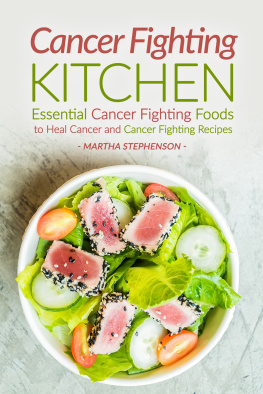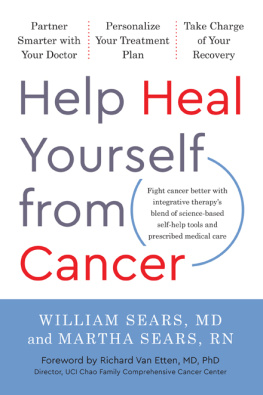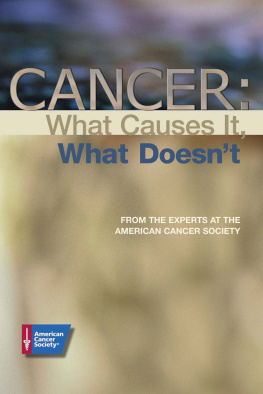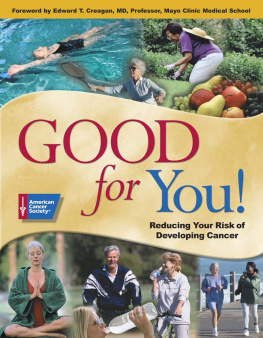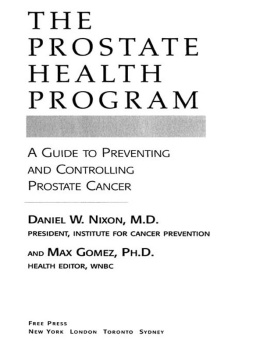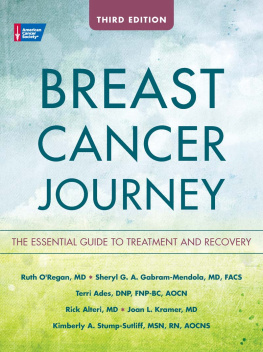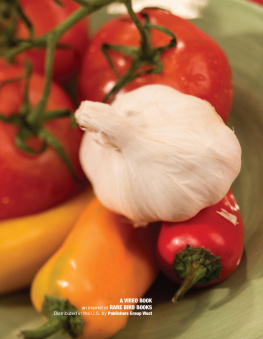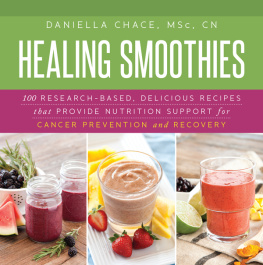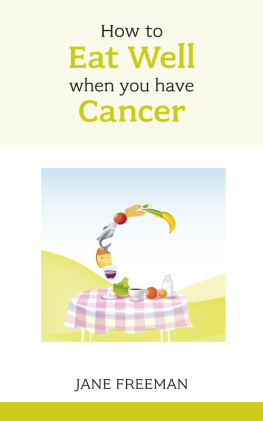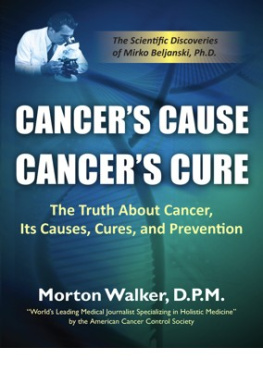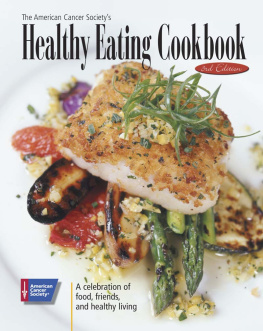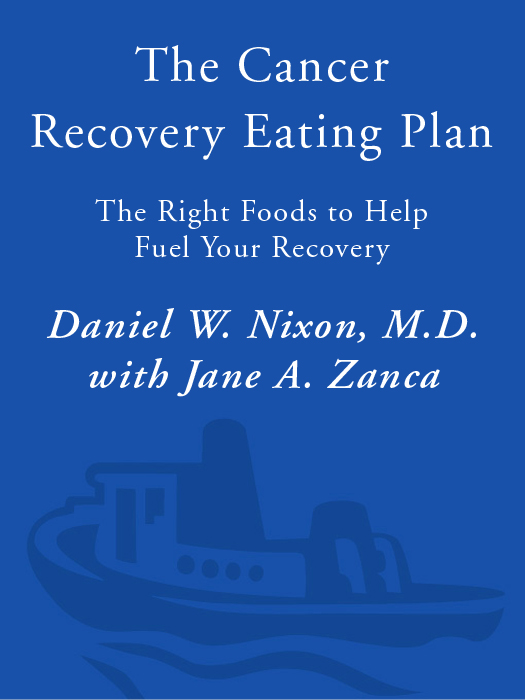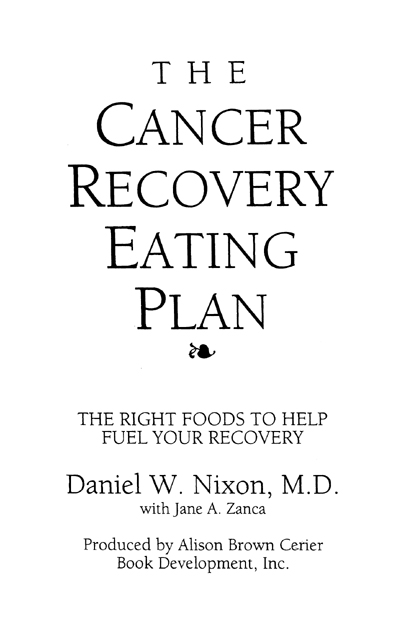This book cannot and must not replace hands-on medical care or the specific advice of your doctor. Use it instead to help you ask the right questions, make the right choices, and work more closely with your doctor and the other members of your healthcare team.
Copyright 1994, 1996 by Daniel W. Nixon, M.D., and Alison Brown Cerrier Book Development, Inc.
All rights reserved. No part of this book may be reproduced or transmitted in any form or by any means, electronic or mechanical, including photocopying, recording, or by any information storage and retrieval system, without permission in writing from the publisher.
Published by Three Rivers Press, New York, New York.
Member of the Crown Publishing Group.
Random House, Inc. New York, Toronto, London, Sydney, Auckland
www.randomhouse.com
THREE RIVERS PRESS is a registered trademark and the Three Rivers Press colophon is a trademark of Random House, Inc.
This book was originally published in hardcover in slightly different form by Times Books, a division of Random House, Inc., New York, in 1994.
Library of Congress Cataloging-in-Publication Data
Nixon, Daniel W.
The cancer recovery eating plan / Daniel Nixon, with Jane A. Zanca.
1. CancerDiet therapy. 2. CancerNutritional aspects.
I. Zanca, Jane A. III. title
RC271.D52N55 1994
616.9940654dc20 94-911
eISBN: 978-0-307-79835-0
v3.1
To Gayle Nixon, R.N.,
and
to the late Dr. Bill Quillian
D.W.N.
To Amanda and Jesse
J.A.Z.
F OREWORD

O ne of the most revolutionary and promising fields of research is that of chemoprevention: the use of micro- or macronutrients, often found in foods, that can prevent, stop, or retard the process of cancer development. Today, the National Cancer Institute has almost forty studies in the area of nutrition that involve fiber, fat, micronutrients, and vitamins. In 1993, over forty abstracts on cancer/nutrition research were sent to the American Association for Cancer Research. These studies are giving us critical information on the substances we may need to add to or eliminate from our diets to help battle cancer.
Every year over 1 million Americans are diagnosed with cancer (excluding skin cancer and in situ cervical cancer) and 500,000 Americans die from it. We now know that the cause of more than 70 percent of malignancies may be in some way related to what we eat; this is true of lung cancer in nonsmokers as well as colon cancer. Every year more evidence accumulates revealing that what we eat has a tremendous influence on whether we will develop cancer. And while the link between diet and cancer is more obvious when were talking about preventionpreventing cancer in the first place should always be our primary goala new body of evidence is emerging showing that what we eat can even have a substantial impact on our ability to fight cancer once it has already developed.
This is a tremendously exciting field of scientific inquiry. While preliminary results are strongly suggestive, it will be yearsperhaps even decadesbefore we have the definitive answers about the cancer/nutrition relationship. Why has it taken the medical community so long to appreciate the connection between diet and cancer? I believe there are several reasons. First, as a nation we tend to focus first on technology. Early in the history of our fight against cancer, in the absence of information on the etiology of cancer, researchers put most of their efforts into developing more effective treatments for battling cancer. Second, perhaps by our very human nature we have been a bit reluctant to investigate the nutrition/cancer connection; admitting that there is a strong relationship between what we eat and whether we get sick means admitting that we may have played a significant role in creating our own illnessnot a comforting thought. Also, nutritional sciences have often been considered soft sciences. Finally, most doctors are regrettably undereducated about the connection between what we eat and our health. Most medical students receive little or no training in nutrition, despite the fact that seven of the top ten causes of death in the United States are related to what we eat. Most doctors, therefore, dont spend time teaching their patients how to eat healthfullynor does our current health insurance structure reimburse them for doing so. The rising incidence of cancers that may be diet-related indicates that we are all paying the price for this shortsightedness. It is my hope that this new body of research will encourage the medical community to refocus its efforts on nutrition as a key tool in prevention and treatment.
My own experience in cancer research has given me a privileged perspective on the evolution of our understanding of the connection between diet and cancer. When I became Director of the National Cancer Institute in 1980, our focus on the applied sciences was still very much on developing more potent methods of chemotherapy and radiotherapy with fewer side effects. Our major investment was in the science of molecular biology, because we felt thenas we do nowthat understanding the causes of cancer at the molecular level was even more important to intelligent prevention than to effective treatment. Promising studies indicating that certain foods and substances in foods were effective in preventing and even halting the progress of cancer suggested a new focus for research.
In 1983, my staff and I started the Division of Cancer Prevention and Control (DCPC) at NCI, whose goal was to develop cancer prevention programs including new efforts in chemoprevention. From 1987 to 1989, Dan Nixon worked with me at NCI. I was very proud to be able to support Dr. Nixon as he supervised the Cancer Prevention Research Program of the DCPC. This included development of the Cancer Nutrition Laboratory, which studied the mechanisms of cancer prevention in animals and in vitro, the Chemoprevention Branch, the Diet and Nutrition Branch, and the Cancer Prevention Studies Branch. I was particularly impressed with Dr. Nixons groundbreaking work in overseeing extensive trials in Finnish and Chinese populationsstudies that have given us extremely valuable data on the cancer-nutrition link. (Many people dont realize that NCI is an international institute that supports research all over the world.)
I think the next decade will bring exciting new information that will help us use nutrition as an increasingly effective tool in combatting cancer. The investment the NCI made in molecular biology has paid off handsomely. We are now able to define precise genetic lesions that put people at risk for getting specific cancers. There is a certain urgency in this. We need more information and need it rapidly on how to help these people avoid cancer. These kinds of data can only come from a substantial investment in large-scale clinical trials that are expensive to conduct. As we identify those high-risk groups, we need to develop and test specific preventive strategies to help minimize that risk. Changing the way those individuals eat could be a large part of that preventive strategy.
As we wait for the results of studies in progress, readers will be able to learn about the state of the art in this book. In this essential reference, Dan Nixon clarifies what we know and do not know about the relationship of food and cancer. He describes the emerging body of research that supports his recommendations of specific diets for specific types of cancer, and offers readers a responsible, sensible plan of action to help them work more effectively with their healthcare team to fight cancerand perhaps prevent a recurrence. It is essential that people with cancer understand that nutrition can be an important adjunct to cancer treatment.


